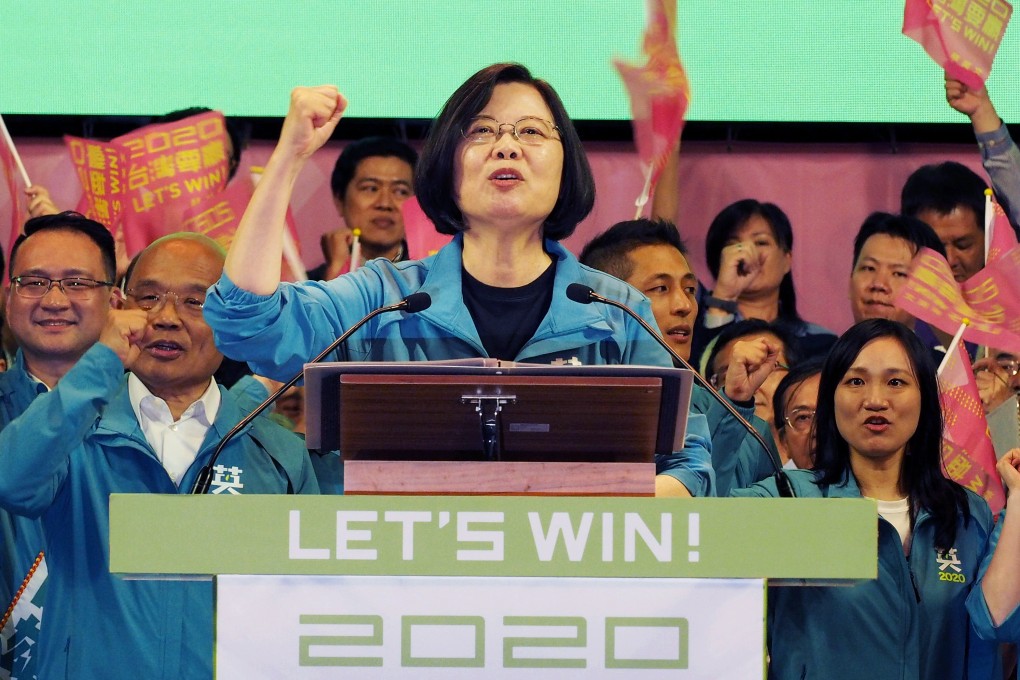Advertisement
Could Hong Kong protests give Tsai Ing-wen the edge in Taiwan’s presidential race?
- President’s show of support for troubled city has helped her build up a clear lead in the polls, analysts say
- But nervous ‘middle voters’ may see Kuomintang’s Han Kuo-yu as a safer bet as he is perceived to be less likely to upset Beijing
Reading Time:4 minutes
Why you can trust SCMP

Sarah Zhengin Beijing
Against a carpet of brightly coloured flags and banners supporting Taiwanese President Tsai Ing-wen at a rally in Taipei on Sunday, Lumino Chang’s sign stood out. It read: “Free Hong Kong, revolution now.”
The 23-year-old Taiwanese medical worker said he was inundated with photo requests and questions from other Tsai supporters at the event, and even featured on the leader’s Instagram with a caption urging people to continue “bravely and resolutely supporting freedom and Hong Kong”.
“Hong Kong and Taiwan both face Chinese Communist Party repression, so there is some form of revolutionary affection between us,” Chang said.
Advertisement
“If we only care about Hong Kong because it’s related to our interests, it’s a bit too self-interested, but it’s a major factor to help sway the public and convince political figures to care about these issues.”

Ahead of Taiwan’s presidential poll in January, the unrest that has grown from the pro-democracy movement in Hong Kong has propelled cross-strait relations between Taipei and Beijing to become a central election issue.
Advertisement
Advertisement
Select Voice
Select Speed
1.00x